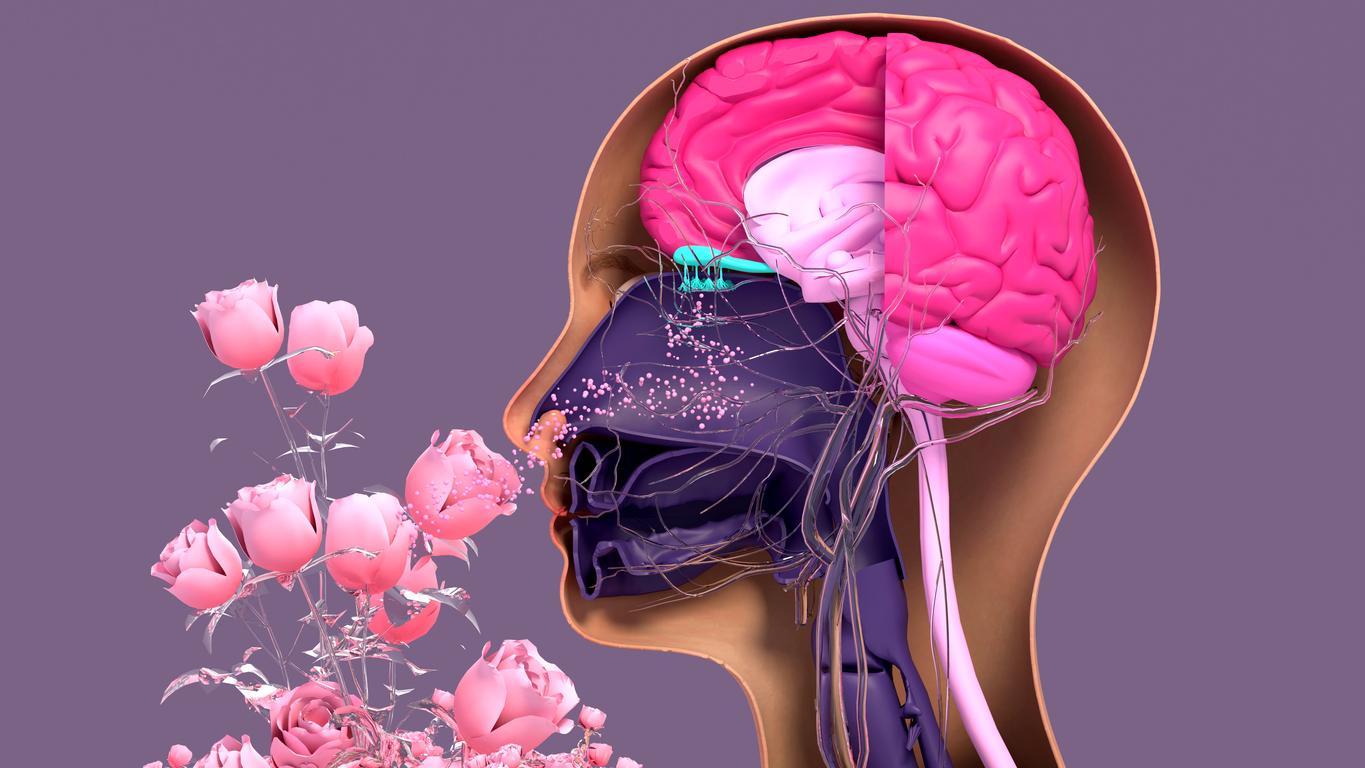A simple sniffing test can predict the rate of recovery and long-term survival of a patient with severe brain damage, according to a new study.

- Recovery of brain-injured patients has many unknowns
- A simple sniff test could give indications of the likely course of a patient’s condition
The term of cerebral lesion – brain-damage means damage to the brain, caused by disease or damage to the brain. When a patient suffers a serious brain injury, it is very difficult for his doctor to determine the extent of the damage and to make appropriate treatment decisions. A barely conscious patient differs from a patient in a vegetative state, as was notably Vincent Lambert. Thus, if a person in a vegetative state can open their eyes, wake up and fall asleep regularly and retain some basic reflexes, they will show no signs of consciousness. On the other hand, a patient in a state of minimal consciousness may sometimes show signs of consciousness. According to a new study published in the journal Nature, a simple sniff test, which is very easy to perform, could help doctors predict the rate of recovery and long-term survival of a patient who has suffered severe brain damage. Ultimately, this would make it possible to put in place more appropriate pain management strategies and to better anticipate decisions concerning a possible end of life.
Our sense of smell relies on structures located deep within our brain. In a healthy person, the brain automatically changes the way they sniff in response to different smells. When a smell is unpleasant to us, we automatically breathe faster and less deeply, whether we are awake or asleep. Here, researchers presented jars containing different scents to 43 severely brain-damaged patients.
After explaining the test to them, the experimenter presented them with a jar containing either a pleasant smell of shampoo or a foul smell of rotten fish, or no smell. Each jar was presented ten times for five seconds, randomly, to the patient. At the same time, the volume of sniffed air was measured through a small tube called a nasal cannula.
“The accuracy of the sniff test is remarkable”
The researchers then found that patients with low awareness inhaled much less in response to odors but did not differentiate between pleasant and unpleasant scents. They also changed their nasal airflow in response to the odorless jar. This therefore implies an awareness of the jar or a learned anticipation of a smell. In contrast, patients in a vegetative state showed more varied results: some did not change their breathing at all, others did.
It was later found that 100% of the participants who reacted to the sniff test regained consciousness. Three and a half years later, 91% of them were still alive. In contrast, 63% of those who showed no response died. “We found that if patients in a vegetative state had a sniffle reaction, they then transitioned to a minimally conscious state. In some cases, it was the only sign their brains were going to recover — and we saw it days, weeks, and even months before any other signs.”, said Professor Anat Arzi, from the Department of Psychology at the University of Cambridge (Great Britain) and the Weizmann Institute of Science in Israel, one of the researchers who led the study. “The accuracy of the sniff test is remarkable – I hope it will help treat severely brain-damaged patients around the world”he welcomes.
Incorporate this method into diagnostic tools
“When the sniffer response is functioning normally, it shows that the patient may still have some level of consciousness even though all other signs are absent”, comments Dr. Tristan Bekinschtein, from the Department of Psychology at the University of Cambridge, who participated in the study. “This simple new method for assessing the likelihood of recovery should be immediately incorporated into diagnostic tools for patients with impaired consciousness..”
However, it is important to remember that although one can recover from a severe brain injury, the injury usually leaves a mark for life. Some patients can no longer walk or speak properly. However, the scars can also be mental. Indeed, the brain of a patient who has suffered a brain injury no longer functions as before. Thus, after leaving the hospital, some only perceive half of their bodies while others no longer understand what they are told, find themselves unable to resume their profession or plan simple daily tasks.
.
















